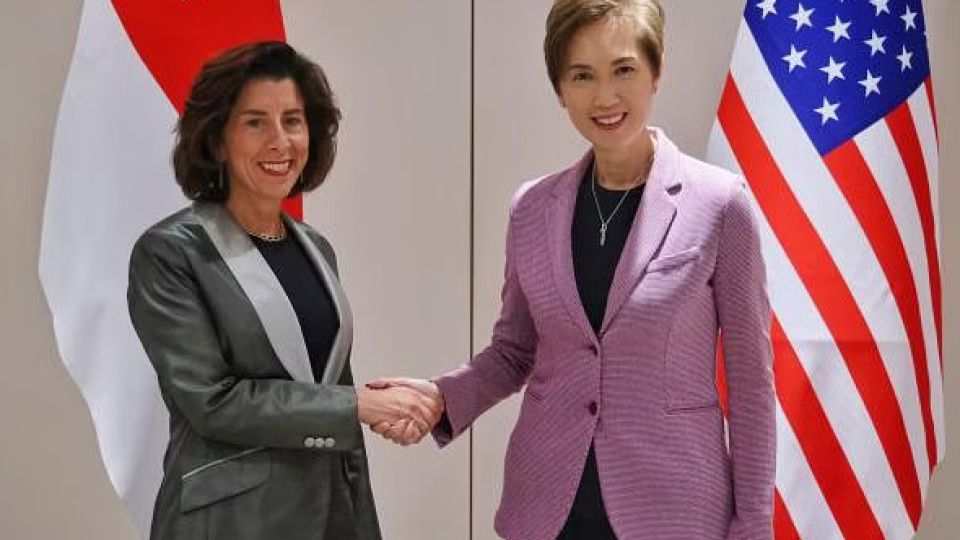SINGAPORE (ANN/THE STRAITS TIMES) – Singapore is enhancing its economic partnership with the United States by launching a new program focused on artificial intelligence (AI) talent development.
The AI Talent Bridge program aims to foster collaboration between the two nations in emerging technologies like AI, with a particular focus on supporting youth, women, and future leaders in the tech industry, according to a joint statement from the US Department of Commerce (DOC) and the Ministry of Communications and Information (MCI).
Building on the US-Singapore Women in Tech Partnership Programme, which began in 2022, the AI Talent Bridge will feature networking and mentoring sessions, workshops, and other activities to facilitate partnerships between companies in both countries. Specific details about the new program are still forthcoming.
AI talent development is one of three key areas identified during a June 5 round-table discussion on AI, led by US Secretary of Commerce Gina Raimondo and Singapore’s Minister for Communications and Information Josephine Teo. The other two areas are digital infrastructure and services, and AI innovation and governance.
Minister Teo emphasised that skills development is crucial for job sustainability and advancement. She highlighted Singapore’s commitment to remaining at the forefront of AI readiness, citing the International Monetary Fund’s recognition of the country’s leadership in this area.
In May, Trade and Industry Minister Gan Kim Yong mentioned that Singapore was considering a talent exchange program with the US in fields such as AI. US investments in Singapore’s digital economy, particularly in AI and other digital technologies, are expected to exceed USD50 billion in the coming years, according to Minister Teo.

US companies have also partnered with local firms to enhance the AI skills of over 130,000 workers in Singapore through initiatives like the TechSkills Accelerator.
Singapore continues to invest heavily in its technological infrastructure, with submarine cables and data centres projected to attract more than USD20 billion in investments. Plans are also underway to expand existing AI centres of excellence and establish new ones.
Technology spending in Singapore reached USD22 billion in 2023, with the US being the top foreign investor. The recent round-table event at The Treasury included government officials and representatives from companies like Google and Grab.
US Secretary of Commerce Gina Raimondo underscored the deep investment the US has in its relationship with Singapore and the eagerness of American businesses to increase their presence in the region.
She highlighted AI as a transformative technology with vast applications, from clean energy to education, and emphasised the importance of working with Singapore to advance AI through private sector innovation.
Raimondo is on a three-day visit to Singapore to attend the Indo-Pacific Economic Framework for Prosperity ministerial meetings and the Clean Energy Investor Forum.
The US and Singapore are also committed to aligning safety standards and mitigating risks associated with AI to build greater trust and promote wider adoption of the technology. A mapping exercise has been completed between the US National Institute of Standards and Technology’s (NIST) AI Risk Management Framework and Singapore’s Infocomm Media Development Authority’s (IMDA) AI Verify framework.
Both nations are focused on the next generation of AI, with Singapore recently launching the Model Governance Framework for Generative AI to address governance challenges. The US AI Safety Institute and Singapore’s Digital Trust Centre are also collaborating to advance AI safety research.
The DOC and MCI will continue to work together on responsible AI design and development, promoting commercialisation opportunities, and developing international standards.



















































